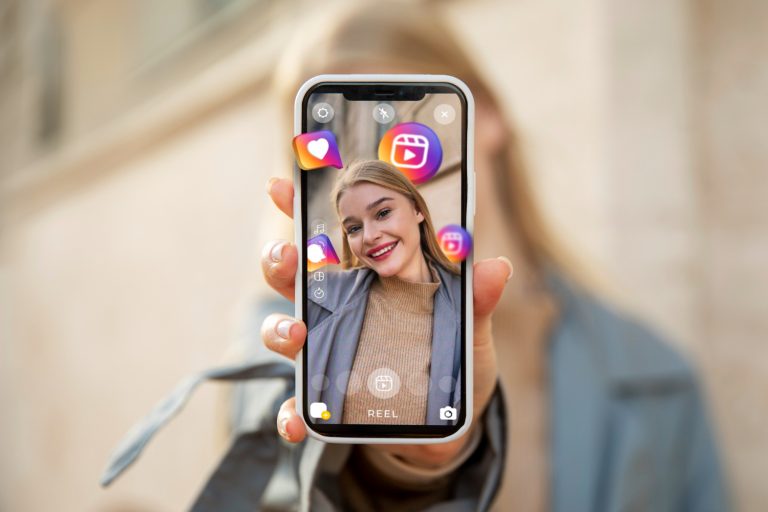
Welcome to the second part of our comprehensive guide to mobile app marketing! In this article, we will delve deeper into advanced app marketing practices and other strategies that can significantly boost your mobile app’s visibility and user acquisition.
Also, if you haven’t, you can read part 1 of the article series from here.
Mobile app marketing is a complex landscape, and staying ahead of the competition requires a solid understanding of various techniques. Without further ado, let’s explore the world of mobile app marketing.
1. Advanced App Store Optimization (ASO) Practices
App Store Optimization is a fundamental aspect of mobile app marketing. It involves optimizing your app’s listing on the app store to improve its visibility and ranking in search results. While we covered the basics earlier, let’s now focus on some advanced ASO practices:
A/B Testing: Experiment with different elements of your app’s listing, such as the app icon, screenshots, and app description, using A/B testing. Analyze the performance of each variant to identify the most effective combination.
Localize Your App Listing: If your app caters to a global audience, consider localizing your app listing. Translate your app’s title, description, and keywords into multiple languages to reach a broader user base.
Monitor Competitors: Keep a close eye on your competitors’ app listings and marketing strategies. Identify opportunities to differentiate your app and stand out from the crowd.
2. Influencer Marketing
Influencer marketing has become a powerful tool for promoting mobile apps. Partnering with relevant influencers in your niche can expose your app to a broader audience. Follow these steps for an effective influencer marketing campaign:
Identify Relevant Influencers: Research influencers who have a significant following in your target market. Look for influencers who align with your app’s theme and values.
Engage and Build Relationships: Approach influencers with a personalized pitch. Show genuine interest in their content and engage with them on social media platforms before reaching out for collaboration.
Authentic Reviews and Demos: Encourage influencers to provide authentic reviews and demos of your app. Authenticity resonates with audiences and builds trust.
If you want to learn more about influencer marketing for mobile apps, this guide can give you in depth information.

3. Social Media Marketing
Social media marketing is an essential component of any mobile app marketing strategy. Utilize popular social media platforms to engage with your target audience and create a community around your app.
Content Strategy: Develop a content strategy that includes a mix of promotional content, engaging posts, user-generated content, and informative updates.
User Interaction: Respond promptly to user comments, messages, and inquiries. Show appreciation for positive feedback and address any concerns or issues raised by users.
Social Media Advertising: Consider running targeted advertising campaigns on social media platforms to reach a broader audience and drive app installations.
4. Content Marketing
Content marketing can significantly contribute to your app’s success. By creating valuable and relevant content, you can attract and retain a loyal user base.
Blog Posts and Articles: Maintain a blog on your app’s website where you can publish informative articles related to your app’s industry, features, and user tips.
Video Tutorials: Create video tutorials demonstrating how to use your app effectively. Video content is engaging and can help users understand your app better.
Guest Blogging: Collaborate with industry influencers or popular blogs to write guest posts that link back to your app’s website. This can increase brand visibility and generate backlinks.
5. User Retention and Engagement
Ensuring a high user retention rate is vital for the long-term success of your app. Focus on keeping users engaged and satisfied.
Push Notifications: Send personalized and relevant push notifications to remind users about app updates, new features, and special offers.
In-App Rewards and Loyalty Programs: Implement in-app rewards and loyalty programs to incentivize users to return to your app regularly.
Customer Support: Offer excellent customer support to address user queries and concerns promptly.
Conclusion
Congratulations! You have now gained valuable insights into advanced mobile app marketing practices. By implementing the strategies discussed in this guide, you can enhance your app’s visibility, attract a larger audience, and improve user acquisition and retention rates.
Remember, mobile app marketing is an ongoing process, and staying up-to-date with the latest trends and techniques is crucial. Continuously monitor and analyze the performance of your marketing efforts to make data-driven decisions and optimize your strategies. Happy marketing!
Further readings about retention and engagement:


